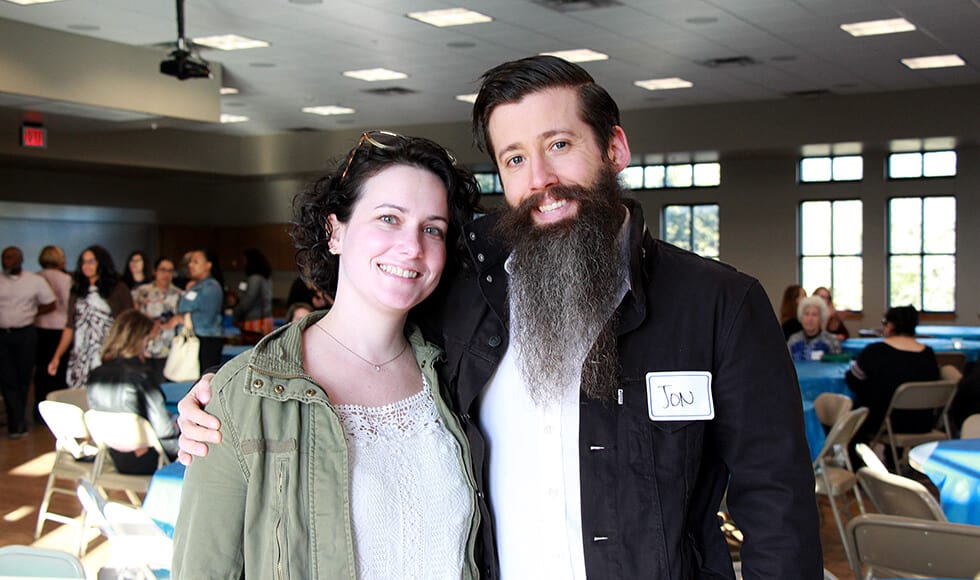
Note: This article appeared first on CASA Travis’ website: https://www.casatravis.org/meet_volunteer_advocate_jon_drew
“Not having kids of my own and suddenly interacting with two kids on my case was a big change,” says CASA volunteer Jon Drew. “As an adult, you almost forget what being a kid is like, not to mention a kid going through the circumstances that these kids are. You learn to rethink what kids are going through and to see life from their perspective.”
After graduating with a history degree from Manhattanville College, Jon and his wife moved to Austin about 12 years ago from Boston, Massachusetts. Today they have a dog, Miley, and enjoy the live music scene in Austin. “We both love music and go to live shows quite a bit,” Jon shares.
Jon currently works for an Austin-based transcription company called SpeakWrite. He credits his work there as the reason he decided to become a CASA volunteer. “We work with a lot of caseworkers in the child welfare system,” shares Jon. “I started to learn about how stressful their job is, and some of the day-to-day issues they face on cases. I wanted to understand what they did more and find a way to give back myself.”
Jon had heard about CASA before, both through ads and the annual CASA Superhero Run. “But I honestly didn’t understand what it was all about, or the level of commitment it took. I thought it was more of a mentorship program before I went through training.”
“The biggest thing is showing them that I am there to listen, not judge.”
When he started his first case, Jon was nervous about meeting the children’s family. “I was kind of worried about any potential animosity they might have towards me or my role. But the biggest thing is showing them that I am there to listen, not judge. I’ve learned to see things from their perspective. And they understand that we are all working together for the best interest of their kids. That’s what I try to communicate most.”
Knowing that many of the other parties he interacts with (attorneys, CPS caseworkers, etc.) have many other cases to manage, Jon values the time he can give to this case. “I have an amazing caseworker on my case, but she has 20-30 other cases she’s working on,” Jon explains. “Because I’m only assigned to one case, I might have more time to get things done more quickly.” Jon even went to visit one of the children after they were placed out of state, to make sure the child saw a familiar face.
Already, Jon’s work with CASA has ignited a passion to find ways of preventing kids from ending up in the child welfare system in the first place.
“You see how abuse is often a cycle. We know these things exist, and often, we even know why they happen; but we don’t put enough effort or funding towards solving them.”
“Training was really good at addressing this. We looked at the causes of why children enter the system and realized that a lot of those things are fixable or preventable if we can allocate the resources at the right time. Instead of only resorting to punitive measures, what if we addressed the ‘why’ behind the situation?” asks Jon. “You see how abuse is often a cycle. We know these things exist, and often, we even know why they happen; but we don’t put enough effort or funding towards solving them.”
Over the last year, Jon has learned just how complex the child welfare system is and how many people are involved on each case. “I saw that the vast majority of people involved are all really focused on the kids and their families,” he observes. “People aren’t doing it because it’s just another job, or to make money. When you see the dedication, you realize that it’s a calling to the people involved. That’s been cool to see.”